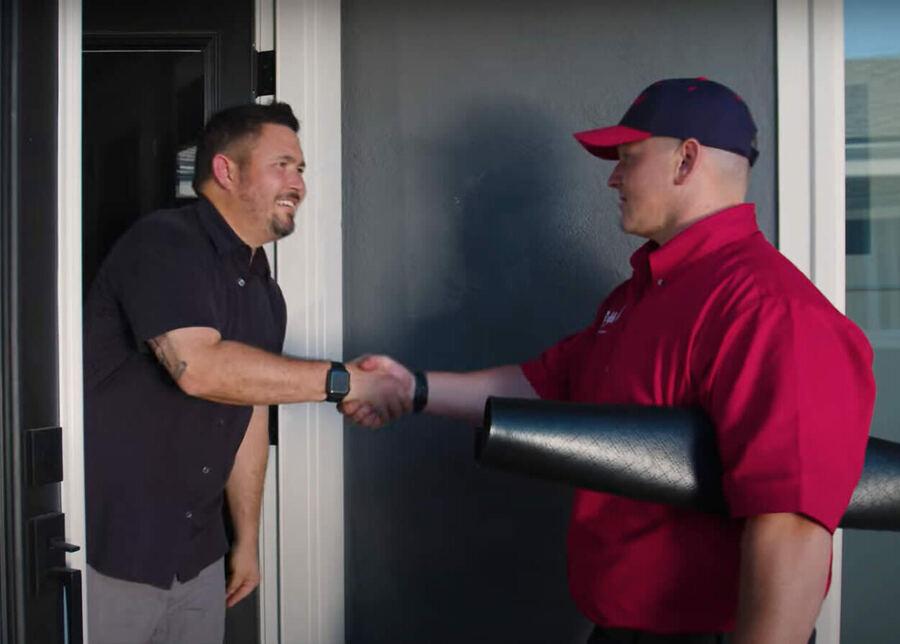Most homeowners don’t think much about their gas lines, but those pipes are among the most important (and most dangerous) parts of your home’s infrastructure. When solid and sound, they transport a steady supply of fuel and power to your home.

Luckily, gas lines are made from strong materials and installed by licensed professionals who follow strict safety codes. Still, even the toughest materials eventually give way to age, weather, and corrosion. When they’re damaged or worn, gas lines can pose grave risks.
In this brief article brought to you by Mr. Rooter Plumbing, we take a closer look at what really happens to gas lines over the years – and what you can do to protect your home. Mr. Rooter is a licensed and insured company proud to offer a wide range of plumbing repair service, including gas line work.
It’s not just extreme weather to worry about. Even normal seasonal changes can stress gas lines. For example, the ground expands and contracts when temperatures fluctuate. Over time, this natural movement can loosen fittings or shift pipes out of alignment.
With that said, extreme weather is certainly a serious threat. During heavy rains and storms, water can seep into the soil and create pressure around buried gas lines. This can cause bending or cracking in older pipes. In areas prone to drought, shifting dry soil can pull on connections and cause leaks.
Even high winds can play a role. Falling tree limbs and debris can strike exterior gas meters or above-ground piping. All it takes is a small hole for gas to escape.
Like almost anything, gas lines have a lifespan. Most systems can last for decades, but age eventually catches up to every material. Joints may loosen, coatings may break down, and once-tight seals may start to fail.
If your home was built before the 1980s and still has original piping, then it’s worth scheduling an inspection at the least. Aging pipes may still function, but they’re often more brittle and more likely to develop leaks under pressure or vibration.
During an inspection, the qualified plumber will evaluate your system’s age, materials, and overall condition. Based on these findings, they will recommend options to keep it reliable for years to come.
Corrosion happens when metal reacts with moisture, oxygen, or chemicals in the soil. While coatings and protective wraps help, even they degrade over time. Once corrosion starts, it can eat away at a pipe’s surface until it eventually cracks or leaks.
Signs of corrosion include discoloration, flaking metal, or a faint rotten-egg smell near gas appliances or meters. These are warning signs you should respond to as soon as possible. A leak can develop faster than you might think.
Pros like the plumbers at Mr. Rooter Plumbing use specialized equipment to pinpoint leaks and accurately measure pressure. Granted, addressing corrosion is easier than dealing with leaks. Don’t wait. Schedule your annual plumbing inspection.
Gas line problems happen slowly, then all at once. Considering the risk of carbon monoxide poisoning or even an explosion, gas line issues should be addressed before they even happen. How? With timely inspections.
Periodic inspections and stress testing can catch vulnerabilities and weak links before damage ensues. This is about safety, preventing unexpected/avoidable gas line repair, and avoiding damage and injury.
If you ever smell gas, hear hissing near a line, or notice dead vegetation around buried pipes, then leave the area immediately and contact your utility company. Residents in Sarasota, FL and surrounding areas can call Mr. Rooter Plumbing for urgent assistance.
Water around the base of a toilet gets attention fast. After all, no one wants to see moisture spreading across the bathroom floor. In many cases, that water signals a…
Let's be frank: Everything costs more than it did two years ago. Your grocery bill is higher, gas prices bounce around like a yo-yo, and if your water heater just…
If you live in Florida, then you know how fast a sunny afternoon can turn into a heavy downpour. In a low-lying state where the water table sits high and…
Your plumber just delivered the news: your home needs repiping. Those galvanized steel pipes that have served faithfully for 60 years are finally giving up. Or…